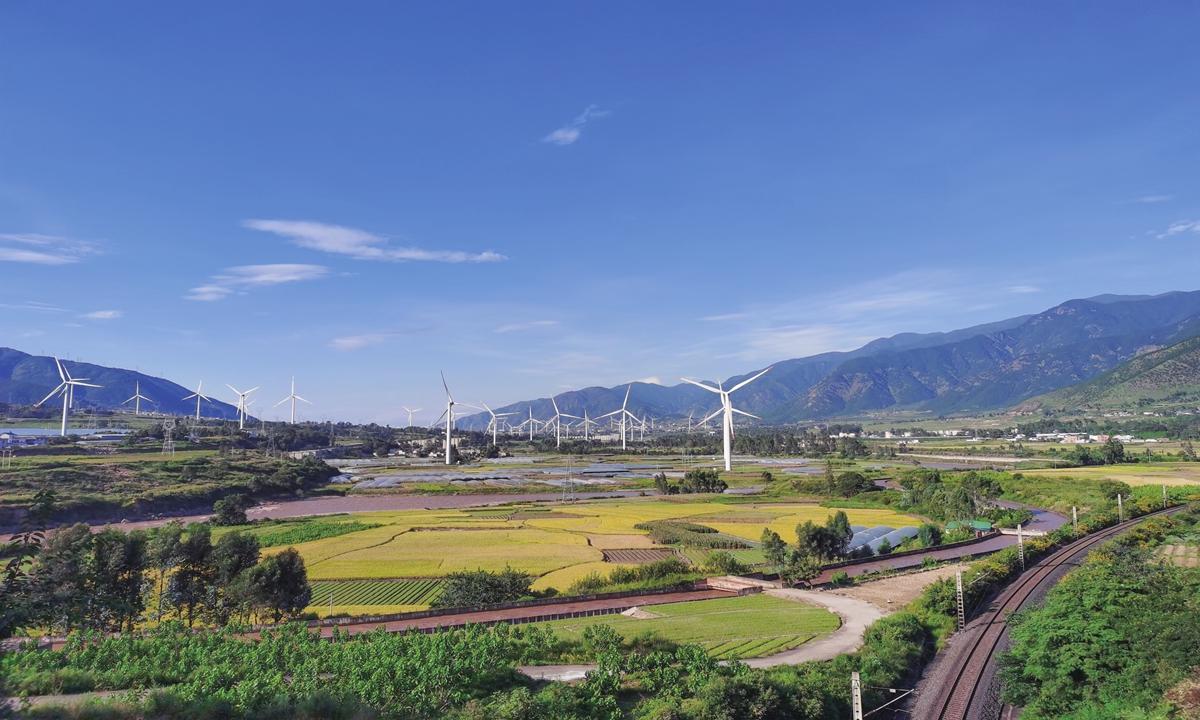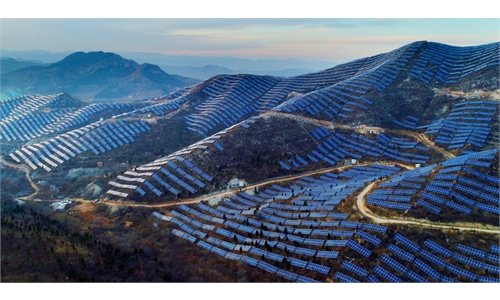
Wind turbines at Dechang county, Liangshan Yi Autonomous Prefecture in Southwest China's Sichuan Province Photo: IC
Though China has been one of the first countries to announce its goals in carbon peak and carbon neutrality with voices from Western media urging China to take more responsibility charge up the country's efforts and determination in carbon reduction, have never silenced. However, many of these reports are based on biased perspectives and double standards that aim to serve the political interests of certain Western countries. Below are some of the frequent charges in recent reports on China's carbon goals and corresponding facts."China's carbon emissions are vast and growing, dwarfing those of other countries." - BBC
Fact: China's carbon emissions have risen in recent years, but this increase came from a quickly developing manufacturing sector. This is an inevitable component of rapid economic development and a by-product of being the world's factory.
Statistics showed that in 2017, household carbon emissions accounted for 60-80 percent of the total emissions in wealthy developed countries. Meanwhile the figure in China is 40 percent, which is only half of the US. Per capita, the electricity consumption of US households in 2019 was six times higher than that of Chinese households.
"China argues it has a right to do what Western countries have done in the past."- BBC
Fact: With a first-mover advantage in the Industrial Revolution, leading Western powers achieved modernization within a short period of time. However, this achievement came at the expense of severe damages to the global environment and emissions that catalyzed climate change. Now, these countries suddenly have a conscience and lecture the developing world to produce less carbon emissions. In reality, this is an attempt to cling to their privileges by curbing the development of other countries.
Though Western countries live large carbon footprint lives, they dictate the standards of the carbon footprint and can therefore still control the narrative.
"China's love for meat is threatening its green movement." - The Atlantic
Fact: The meat-heavy diet of the Westners leaves a high carbon footprint. As a 2020 study by the University of Michigan's Center for Sustainable Systems shows, in Western countries like the US, meat is the largest contributor (56.6 percent) of carbon emissions of an average meal. In contrast, meat only accounts for 36.6 percent of the carbon footprint of an average Chinese meal, according to Beijing Review due to a tendency to consume rice as the staple food.
"As China boomed, it didn't take climate change into account." - The New York Times
In September 2020, China took the initiative to pledge that it will strive to cut carbon dioxide emissions after 2030 and achieve carbon neutrality before 2060, otherwise known as the "3060" target.
Announcing the ambitious "3060" target means China, a developing country with 1.4 billion people, is determined to complete a mission in just three decades what would take developed nations 50 to 60 years. It speaks volumes about the conviction and responsibility of China.

Reckoning of Luxrious Emission Infographic: Feng Qingyin/GT



